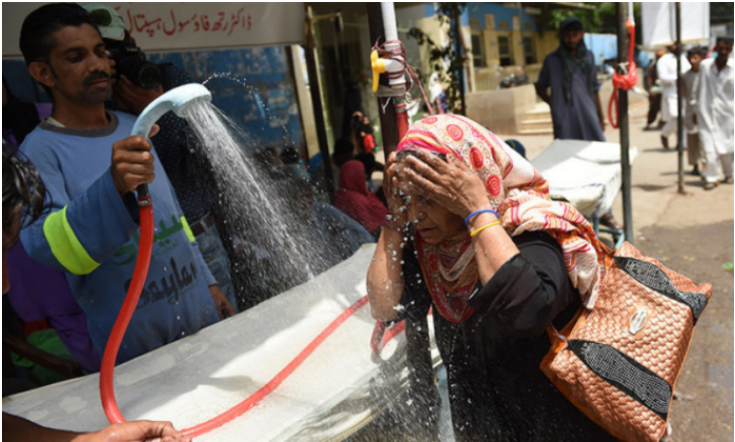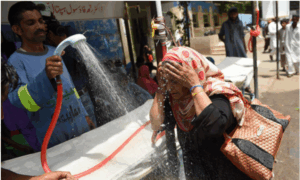Intensifying Heat Wave in Pakistan: A Climate Crisis Unfolding

As the summer of 2025 progresses, Pakistan is grappling with one of its most severe heatwaves in recent history. Temperatures have soared to unprecedented levels, straining infrastructure, disrupting daily life, and highlighting the urgent need for climate action.
🔥 Unprecedented Temperatures Across the Country
The Pakistan Meteorological Department has reported that several regions, including Sindh and Punjab, are experiencing temperatures significantly higher than the seasonal average. In Sindh, cities like Jacobabad and Nawabshah have recorded temperatures exceeding 50°C, while parts of Punjab are facing similar extremes. These conditions are exacerbated by high humidity levels, making the heat even more unbearable.can
🏫 Educational Disruptions Due to Extreme Heat
In response to the soaring temperatures, provincial governments have implemented measures to protect students. The Punjab Education Department has announced the closure of all public and private schools from May 25 to May 31, affecting approximately 26 million children. Similarly, the Khyber Pakhtunkhwa government has reduced school hours to mitigate the impact of the heat on students and staff.
🏥 Health Risks and Vulnerable Populations
The extreme heat poses significant health risks, particularly to vulnerable groups such as the elderly, children, and those with pre-existing health conditions. Hospitals are reporting an increase in heat-related illnesses, including heatstroke and dehydration. Authorities are urging the public to stay hydrated, avoid direct sunlight, and limit physical exertion during peak heat hours.
🌱 Climate Change: The Driving Force
Experts attribute the intensity and frequency of these heatwaves to climate change. Rising global temperatures are leading to more extreme weather events, including prolonged heatwaves. Pakistan, being an agricultural economy, is particularly vulnerable to such climatic shifts, which threaten food security and water resources.
🛠️ Urgent Need for Adaptation and Mitigation
To address the escalating climate crisis, experts emphasize the importance of both mitigation and adaptation strategies. Mitigation involves reducing greenhouse gas emissions, while adaptation focuses on preparing communities for the impacts of climate change. This includes investing in resilient infrastructure, promoting water conservation, and implementing early warning systems for extreme weather events.
📣 Call to Action
As Pakistan endures this severe heatwave, it serves as a stark reminder of the pressing need for comprehensive climate action. Governments, communities, and individuals must collaborate to build a sustainable and resilient future. Immediate measures, such as enhancing public awareness and strengthening disaster response mechanisms, are crucial to mitigate the impacts of future climate extremes.










